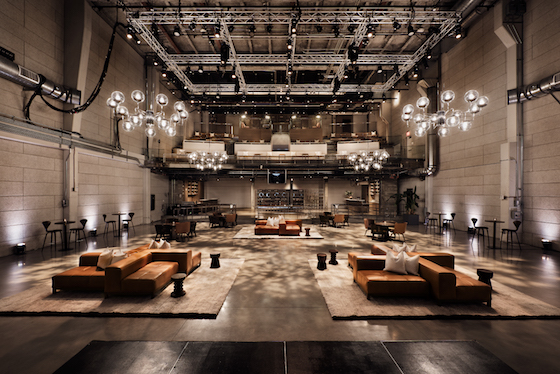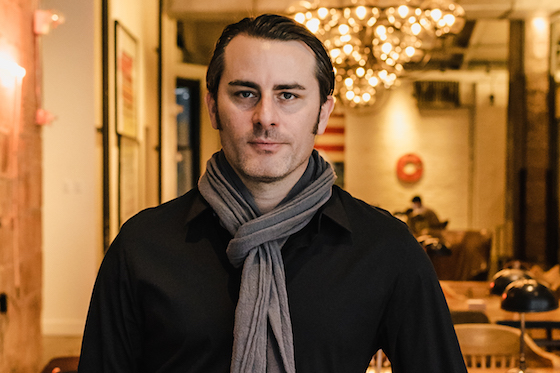Neuehouse, a co-working space and private club with locations in New York and Los Angeles, is armed with capital and aiming for expansion. With US$30 million from the Diller-von Furstenberg Family Office and new investors Gaw Capital and privately held real estate manager Meyer Bergman’s Revolt Ventures, the company plans to expand in L.A. and has its sights on opening in eight other North American cities. “The original founders and now myself really view the company as a knowledge company and an experience company,” says Josh Wyatt, Neuehouse’s CEO since November. It also does a booming business in events.
Wyatt, a co-founder of Generator Hostels and most recently president of Equinox Hotels, talked to HOTELS Editor in Chief Jeff Weinstein about expansion plans for the brand, which Wyatt calls the “most highly elevated offering in the private members and working space.”

HOTELS: How is it going?
JW: It’s been a really fun, great wild ride in terms of growing the business and learning about, tangentially, a new industry – and looking at some of the opportunities out there… (Neuehouse) is touching on a number of different needs at a highly elevated, highly aspirational positioning in the market. And our goal at the end of the day is to create the Four Seasons of private member work space. No one’s done it at scale… But the initial goal of Four Seasons, or you look at some other highly elevated hotel brands – take Ace Hotel Group, some of these great lifestyle and luxury brands – they start small, build a very credible voice, a very loyal following, and they create amazing, interesting product that really provokes and drives the design discussion forward. That’s what attracted me to NeueHouse. It’s similar to what I did at Generator, where I saw Generator as a price point, but there was a gap in the market.
H: How are you going to grow?
JW: The company went through a period where the capital structure was not optimized to scale. One of my first initiatives was to ensure that we had the proper capital structure to be able to grow. (The US$30 million investment) has allowed us to fund two deals very quickly, one in downtown L.A. and another one in Venice (California)… The goal is to grow in a very measured and considerate way into markets where we think that there’s a huge need for this highly elevated product.
H: You have two tiers of annual membership – “gallery,” or individual membership, and studio membership, for companies up to potentially 100 people, with a permanent desk.
JW: That membership that we’re curating for the various individuals and companies is the key to our success. And we have a very high threshold to entering. We need to make sure that we have a creative class within the four walls and the layouts and people who really bring something to the conversation… The value proposition for these enterprise companies or clients coming in is that they’re able to unplug from the standard office experience into a highly designed experience… I see a lot of parallels with the hotel space. Using Four Seasons as an example and looking at what they created all those years ago, that high-level hospitality service offering on a consistent basis, and an incredibly designed environment, all the while facilitating and developing the right creative system for people and companies to really succeed and drive.

H: Would you consider a lodging component?
JW: Given my hotel background it’s such an obvious evolution of NeueHouse. I definitely see us working with hotel companies, and we’re in talks right now with three different hotel companies, to partner with them to put NeueHouse either into the actual physical space where these lifestyle hotel companies reside, where they need activation in their lobbies and or their meeting spaces. Or another angle is to work with a developer that has a hotel and wants an office component but wants to curate the office component where it hooks to the hotel.
I don’t see us as launching a NeueHouse hotel brand right now because I think that the lifestyle luxury sector is fairly full, and I just don’t see the unique value proposition of launching yet another luxury hotel brand. What I do see is a number of lifestyle and luxury hotel companies and independent hoteliers who are looking for a best-in-class, highly differentiated product to really add that physical merit to their property, or a property next door to the property, and that’s where we’re going to play.
H: Do you see yourself as a competitor to hotels even though you don’t have rooms?
JW: I don’t know if hotel companies have the bandwidth or the in-house team to be able to recreate that strategy. I think it would take them a long time and I would have to really question whether or not they have a credible, authentic voice in that space.
H: What can hotels learn from how you’re maximizing your space?
JW: The typical problem with hotels is you’re full from 5 p.m., 6 p.m. until 8 a.m. and then you’re dead during the day. The office market is the exact opposite. You’re full 8 a.m. to 6 p.m. and then you’re dead at night. NeueHouse is straddling both of those areas, and it’s not necessarily that the per square foot basis is more dense, it’s more that we are activating the property for about 18 hours a day. People come in at 8 a.m., they’re working. The property transforms and morphs starting around 4 or 5 o’clock into various events and F&B, and those typically run until midnight, 1 in the morning. And that’s where I think the interesting lessons can be learned is thinking about how do you actually utilize your space from an operational perspective and an offering perspective to get the best yield on total capital.
H: You could steal events business from hotels.
JW: I wouldn’t call it stealing because I’ll give you a good example: We did an 800-person film premiere (recently) for Netflix. That type of product is not going to go to hotels… (Large-format hotels) obviously can do 1,000-, 2,000-person conferences, maybe even more, but these are high-touch, highly produced social media events. I think it’s a more complementary product.
H: What else can hoteliers glean from your experience?
JW: You’re certainly going to see NeueHouse talk about the knowledge economy. And that knowledge and access is the new luxury… It’s more about accumulating knowledge and accumulating access to different and unique things… I think you’re going to see a lot of interesting hoteliers adopt this whole position of knowledge programming and really trying to create more of a creative dialog as opposed to a pushed-out experience. Experience is one (thing), but … whether or not it actually has an impact on (guests) is the debate. We think we’re actually having an impact.

